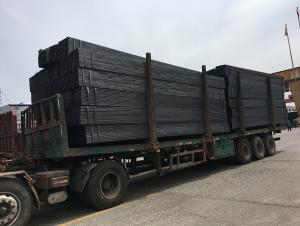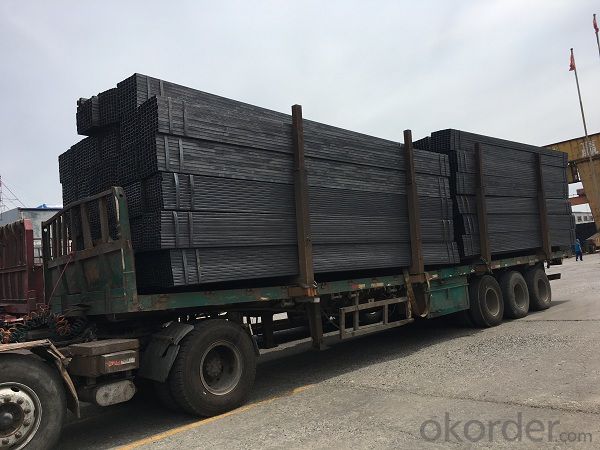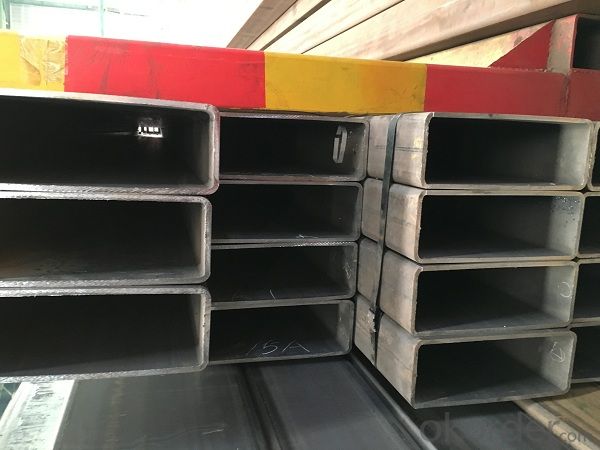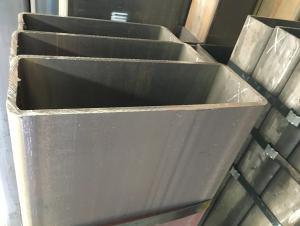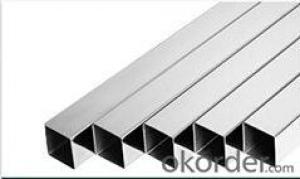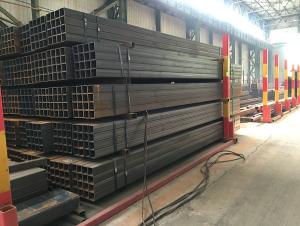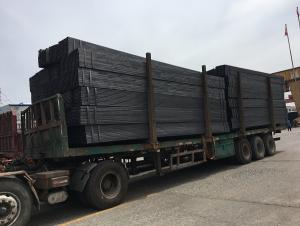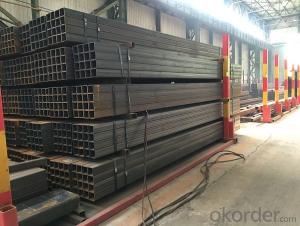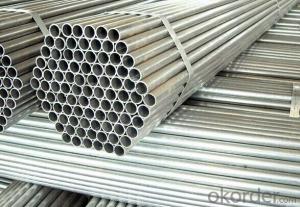Welded square tube for building structure
- Loading Port:
- Tianjin
- Payment Terms:
- TT or LC
- Min Order Qty:
- 15 m.t.
- Supply Capability:
- 15000 m.t./month
OKorder Service Pledge
OKorder Financial Service
You Might Also Like
1、Structure of Welded square tube for building structure
Square tube, square tube is a kind of call and rectangular tube, is equal and not equal to the length of steel pipe. Is the strip through the process of processing roll system. In general is the strip through the demolition of the package, flat, curly, welded to form a circular tube, and then rolled into a square tube and then cut into a square tube and then cut into the required length.
2、Main Features of Welded square tube for building structure
• High manufacturing accuracy
• High strength
• Small inertia resistance
• Strong heat dissipation ability
• Good visual effect
• Reasonable price
3、 Welded square tube for building structure Specification:
Standard | GB, DIN, ASTM |
Grade | 10#-45#, 16Mn 10#, 20#, 45#, 16Mn |
Thickness | 1.5 - 25 mm |
Section Shape | Square and rectangular |
Outer Diameter | 20*20 mm-------400*400mm 20*30mm*300*500mm |
Place of Origin | Tianjin, China (Mainland) |
Length | 3-12M |
Outer Diameter | 20*20 mm-------400*400mm 20*30mm*300*500mm |
Grade | 235B 345B |
Standard | ASME, ASTM |
1) Material:(ASTM A 106/A53 GRB.API5LGRB,GB,235B,345B
2) Specification range:OD: 20*30mm----300*500mm 20*20 mm---400*400mm ,WT: 1.5 - 25 mm ,length:3-12m or according to the requirement of clients.
3) Excutive standards:GB,ASME API5L.ASTM A 106/A53,Despite of the above
4) Surface:black lacquered,varnish coating or galvanized.
5) Ends:Beveled or square cut ,painted.
6) Packing:bundles wrapped with strong steel strip,seaworthy packing.
4、Packaging & Delivery
Packaging Details: | seaworthy package,bundles wrapped with strong steel strip |
Delivery Detail: | 15-30days after received 30%TT |
5、FAQ of Welded square tube for building structure :
①How is the quality of your products?
Our products are manufactured strictly according to national and internaional standard, and we take a test
on every pipe before delivered out. If you want see our quality certifications and all kinds of testing report, please just ask us for it.
Guaranteed: If products’ quality don’t accord to discription as we give or the promise before you place order, we promise 100% refund.
②How about price?
Yes, we are factory and be able to give you lowest price below market one, and we have a policy that “ for saving time and absolutely honest business attitude, we quote as lowest as possible for any customer, and discount can be given according to quantity”,if you like bargain and factory price is not low enough as you think, just don’t waste your time.Please trust the quotation we would give you, it is professional one.
③Why should you chose us?
Chose happens because of quality, then price, We can give you both.Additionally, we can also offer professional products inquiry, products knowledge train(for agents), smooth goods delivery, exellent customer solution proposals.Our service formula: good quality+good price+good service=customer’s trust
SGS test is available, customer inspection before shipping is welcome, third party inspection is no problem.
6、 Welded square tube for building structure Images:
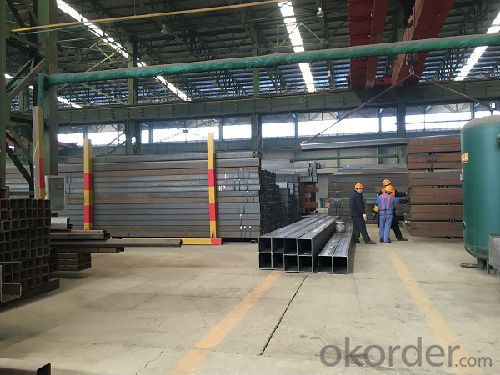
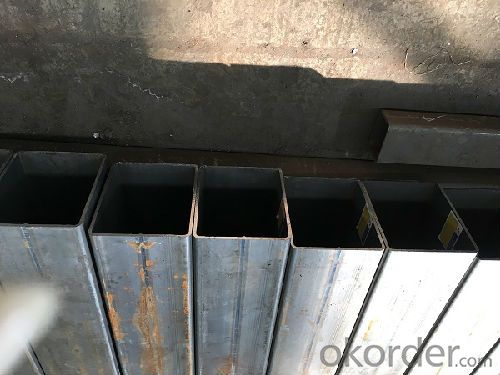
- Q: Can steel pipes be used for stadium construction?
- Yes, steel pipes can be used for stadium construction. Steel pipes are commonly used in stadium construction due to their strength, durability, and ability to withstand heavy loads. They can be utilized for various purposes such as supporting the stadium structure, creating frames for roof structures, and facilitating the installation of plumbing and electrical systems. Additionally, steel pipes can be easily fabricated, allowing for efficient construction and customization according to the specific requirements of the stadium design.
- Q: Can steel pipes be used for underground cooling systems?
- Yes, steel pipes can be used for underground cooling systems. Steel pipes are often preferred for underground applications due to their strength, durability, and resistance to corrosion. They can effectively withstand the pressure and temperature requirements of cooling systems and can be used for transferring chilled water or other coolants underground.
- Q: What are the different types of steel pipe bends for pipeline routing?
- There are several types of steel pipe bends commonly used for pipeline routing, including 90-degree bends, 45-degree bends, and 180-degree bends. Additionally, there are long radius bends and short radius bends, which refer to the curvature of the bend. These different types of bends allow for flexibility in pipeline design and routing to accommodate various installation requirements and project constraints.
- Q: Can steel pipes be used for underground sewage systems?
- Yes, steel pipes can be used for underground sewage systems. Steel pipes are durable, resistant to corrosion, and can withstand high pressure, making them suitable for transporting sewage underground. However, proper protective coating and maintenance are essential to prevent any potential corrosion or degradation over time.
- Q: Difference and application of seamless hot rolled pipe and cold drawn pipe in seamless steel tube
- The general production of hot-rolled seamless steel pipe in the automatic tube rolling mill. Solid billet after inspection and clearance of surface defects, cut into required length, in the tube hole end surface of centering, then sent to a heating furnace, in punch in punch. While continuing to rotate and advance, in the roll and immediate action, tube gradually form a cavity, called capillary. Sent to the automatic tube rolling mill on rolling. Finally after all the entire thickness, sizing machine sizing, achieve specifications. Using continuous pipe mill production of hot-rolled seamless steel tube is advanced.1.2, in order to obtain smaller size and better quality of seamless tube, cold rolling, cold drawing must be used or combined method of cold rolling. Usually in two roller mill, rolling ring groove tapered plug pipe in variable cross section circular slot and the composition. Drawing is usually in single or double 0.100T chain drawbench.1.3, the extrusion method will soon heat the tube blank in the closed extrusion cylinder, the perforation bar and extrusion rod movement, so that extrusion parts from the smaller die hole extrusion. This method can produce smaller diameter steel pipe
- Q: How do steel pipes withstand high pressure and temperature?
- Steel pipes are able to withstand high pressure and temperature due to their inherent properties and construction. Steel is known for its strength and durability, making it an ideal material for pipes used in demanding applications. Firstly, steel pipes are made from high-quality steel alloys that have been specifically designed to withstand extreme conditions. These alloys are chosen for their high tensile strength, which allows the pipes to withstand the internal pressure exerted by fluids or gases flowing through them. The steel used in these pipes is often alloyed with other elements such as chromium, molybdenum, or nickel to enhance its resistance to corrosion and high temperatures. Secondly, the construction of steel pipes plays a crucial role in their ability to withstand high pressure and temperature. Steel pipes are typically manufactured using a seamless or welded process. Seamless pipes are made by piercing a solid steel billet, resulting in a continuous and uniform pipe with no seams or joints. This seamless construction eliminates weak points and ensures that the pipe can handle high pressure without any risk of leakage. Welded pipes, on the other hand, are made by joining two or more pieces of steel together using a welding process. The welds are carefully inspected and tested to ensure their integrity and strength. Although welded pipes may have seams, they are equally capable of withstanding high pressure and temperature when manufactured to the appropriate standards. Additionally, steel pipes can be further reinforced to enhance their resistance to pressure and temperature. For instance, pipes used in extremely high-pressure applications may be thicker or have additional layers of protective coatings. These measures help to increase the strength and durability of the pipes, allowing them to withstand even higher pressures and temperatures. In summary, steel pipes are able to withstand high pressure and temperature due to the strength and durability of the steel alloys used in their construction. The seamless or welded construction of these pipes eliminates weak points and ensures their ability to handle extreme conditions. Additional reinforcement and protective coatings can be applied to further enhance their resistance to pressure and temperature.
- Q: Galvanized steel pipe, PPR pipe, PE pipe, U-PVC pipe and HDPE double wall corrugated pipe and what is the difference between the characteristics of
- U-PVC tubes are hard poly vinyl pipes, because they contain chlorine, so they are mainly used in sewer pipes or electrical wiring;HDPE double wall corrugated pipe is a high-density polyethylene pipe, because of its excellent electrical insulation performance, now mainly used for distribution line arrangement.
- Q: How are steel pipes used in geothermal energy systems?
- Steel pipes are an essential component in geothermal energy systems as they are used to transport the hot water or steam extracted from the underground reservoirs to the surface. These pipes are designed to withstand high temperatures and pressure, ensuring the safe and efficient transfer of geothermal fluids. Additionally, steel pipes are also utilized in the construction of geothermal power plants, connecting various components like heat exchangers and turbines, facilitating the generation of renewable and sustainable energy.
- Q: Can steel pipes be used for the construction of dams?
- Yes, steel pipes can be used for the construction of dams. Steel pipes are often used in dam construction for various purposes such as water intake and outlet structures, penstocks, and spillway gates. They offer durability, strength, and resistance to corrosion, making them suitable for withstanding the high pressures and harsh environments associated with dam construction.
- Q: Can steel pipes be used for fencing?
- Yes, steel pipes can be used for fencing. Steel pipes are durable, strong, and resistant to corrosion, making them an excellent choice for fencing applications. They can be used to create secure and long-lasting fences in various settings, such as residential, commercial, or industrial properties.
Send your message to us
Welded square tube for building structure
- Loading Port:
- Tianjin
- Payment Terms:
- TT or LC
- Min Order Qty:
- 15 m.t.
- Supply Capability:
- 15000 m.t./month
OKorder Service Pledge
OKorder Financial Service
Similar products
Hot products
Hot Searches
Related keywords
